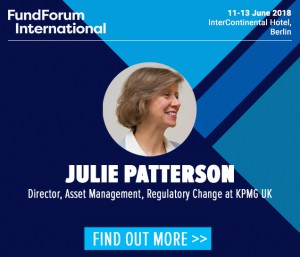EAMR 2018: a parting of the ways?

 On 11 June at FundForum International, KPMG will launch their Evolving Asset Management Report 2018, which describes the changing global regulatory landscape for asset managers and investment funds.
On 11 June at FundForum International, KPMG will launch their Evolving Asset Management Report 2018, which describes the changing global regulatory landscape for asset managers and investment funds.
The overarching theme is that the post-financial crisis consensus appears to be gone, with the US taking a different path to Europe and Asia. Outside the US, the drive to implement new rules is relentless, and new regulation is being proposed, including in new areas of the business. But, partly in reaction to the deregulatory agenda in the US, “competitiveness” is re-entering regulatory debates.
After the financial crisis, regulators around the globe agreed common aims to enhance the integrity of markets and to reduce risks for governments and consumers. There was consensus on the overall regulatory agenda and priorities, leading to a convergence of worldwide regulatory standards. That consensus now appears to be breaking down.
The US administration believes the raft of post-crisis regulation has encumbered its fund management industry. There is a desire to deregulate and take a path that forks from that of other countries, which are forging ahead with the implementation of new rules.
Within Europe, each piece of post-crisis regulation has a review clause, but each of these reviews has a different due-by date. Will the US deregulatory agenda impact policy makers’ views on the extent to which EU legislation should be rationalised?
As regards supervisory activities, there is a common global theme – increased scrutiny of the asset management sector. Regulators are evolving their supervisory approach, seeking increased resources and harnessing technology.
"Simple and meaningful cost disclosures for funds remain firmly on the regulatory agenda but are elusive."
A parting of the ways is especially clear in the ongoing debate about systemic risks inherent in asset management activities and investment funds. The growth in exchange-traded funds (ETFs) has brought them under the spotlight, but arguments, counter-arguments and mixed messages make it difficult to call the direction of the debate outside the US.
Meanwhile, regulators continue to focus on governance, culture and conduct, with an increasing focus on named individuals and clarity of roles, risk and compliance functions, and product governance. Also, the protection of client data has emerged as a major priority, with big questions for asset managers about what data they hold and whether they may need to restrict cross border flows.
Simple and meaningful cost disclosures for funds remain firmly on the regulatory agenda but are elusive. And, within Europe, an increasing number of regulators are also scrutinizing the level of costs and charges. They are questioning whether investors are being put front and centre.
Competitiveness is beginning to re-enter regulatory debates, with a number of countries establishing new domestic fund structures to compete with foreign options. Cross-border distribution of investment funds is far from frictionless, though. Use of the Asian fund passports remains low and the European Commission has made it a priority for 2018 to remove barriers to creating a more competitive pan-EU investment landscape, including for personal pensions. However, there are questions about whether its proposals will result in more red tape, not less.
“Brexit” will impact cross border flows between the UK and the rest of the EU, in both directions. Also, the EU regulatory approach to “substance” and “delegation” looks set to become more demanding. It seems that asset managers will need to navigate a complex distribution landscape for some years to come.
"As institutional investors increasingly ask more questions about ESG and SRI, the long-standing debate about whether consideration of ESG factors or SRI fits with fiduciary responsibility is evolving."
Regulation is also entering new areas of the asset management business. It is evolving to facilitate the development of “fintech” and to be fit-for-purpose in the digital age, for example. Regulators recognize the benefits of new technologies and are seeking to accommodate them, but they are also concerned about existing risks that could be heightened by the new forms of services. Cyber security, robo-advice, crowdfunding and cryptocurrencies are all under consideration.
Sustainable investing was until recently considered a matter only for asset managers and investor preferences, but has now entered the regulatory mainstream. Initiatives relating to environmental, social and governance (ESG) factors and socially-responsible investing (SRI) have received regulatory support in several countries.
As institutional investors increasingly ask more questions about ESG and SRI – in part prompted by their own beneficiaries’ demands, in part by regulatory suasion – the long-standing debate about whether consideration of ESG factors or SRI fits with fiduciary responsibility is evolving. Also, some regulators are beginning to ask questions about diversity in the work force.
While navigating an increasingly complex regulatory landscape, asset managers will need to keep their eye on the reviews of post-crisis regulation and further regulatory proposals. It seems that the industry will need to operate within and manage uncertainty, for some time to come.